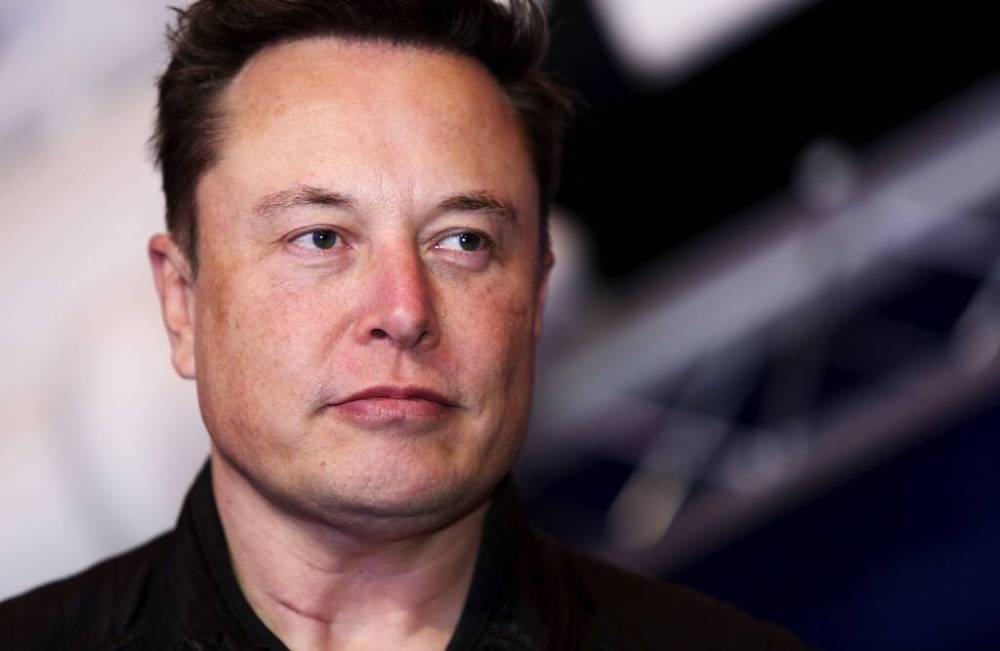Musk’s Twitter tilt risks alienating users
Advertisement
Read this article for free:
or
Already have an account? Log in here »
To continue reading, please subscribe:
Monthly Digital Subscription
$0 for the first 4 weeks*
- Enjoy unlimited reading on winnipegfreepress.com
- Read the E-Edition, our digital replica newspaper
- Access News Break, our award-winning app
- Play interactive puzzles
*No charge for 4 weeks then price increases to the regular rate of $19.00 plus GST every four weeks. Offer available to new and qualified returning subscribers only. Cancel any time.
Monthly Digital Subscription
$4.75/week*
- Enjoy unlimited reading on winnipegfreepress.com
- Read the E-Edition, our digital replica newspaper
- Access News Break, our award-winning app
- Play interactive puzzles
*Billed as $19 plus GST every four weeks. Cancel any time.
To continue reading, please subscribe:
Add Free Press access to your Brandon Sun subscription for only an additional
$1 for the first 4 weeks*
*Your next subscription payment will increase by $1.00 and you will be charged $16.99 plus GST for four weeks. After four weeks, your payment will increase to $23.99 plus GST every four weeks.
Read unlimited articles for free today:
or
Already have an account? Log in here »
Hey there, time traveller!
This article was published 25/04/2022 (1324 days ago), so information in it may no longer be current.
Elon Musk grabs headlines almost as quickly as his high-tech companies acquire capital.
The 50-year-old entrepreneur and engineer is the founder and chief executive officer of SpaceX, an aerospace company that became the first private firm to launch a spacecraft into orbit and dock with the International Space Station.
Mr. Musk also heads Tesla, the electric automobile manufacturer that has gained about one-quarter of the worldwide market in battery-powered vehicles, one of the fastest growing segments in the automotive industry.

In so doing he has become the world’s wealthiest person, worth about US$265 billion according to Forbes, a stratospheric number that leaves ultra-rich industrialists such as Microsoft’s Bill Gates and Amazon’s Jeff Bezos behind.
Mr. Musk’s wealth and cavalier public persona — he once shared a joint with host Joe Rogan during a live podcast interview — have made him hugely influential and inspire other risk-takers to try to ride his vapor trail to financial glory.
His latest venture is an attempt to purchase Twitter, the popular social-media platform on which he regularly posts, for US$43 billion. Mr. Musk already owns nine per cent of the company, but his fellow shareholders rejected his offer and implemented a “poison pill” scheme that would greatly increase the cost of a takeover.
That apparently hasn’t deterred Mr. Musk; last Thursday he said he has the financing to fund the takeover. Despite being the world’s richest man, however, he needs well-moneyed backers for the acquisition because most of his wealth is tied up in his companies.
Business takeovers are commonplace, but Mr. Musk’s desire to buy Twitter has caught the world’s attention and made its users apprehensive.
Envy of the rich often breeds suspicion, but Mr. Musk’s unpredictable nature — he once mentioned at least half of his Twitter posts are composed while on the toilet — leaves others wondering in which direction he will take the company.
Perhaps the biggest worry is that Mr. Musk, a vocal proponent of free speech, would once again welcome posts from users Twitter has previously banned for contravening its content policies.
That would include Donald Trump, who got the Twitter axe in the waning days of his presidency for posting falsehoods about the integrity of U.S. elections and suggesting “patriots” had peacefully entered the U.S. Capitol building on Jan. 6, 2021, when in fact many had assaulted police officers and trashed parts of the building while others sought to attack members of Congress.
Twitter makes its money by presenting curated advertising to its users, which are nearly 400 million around the world, and greater usage means higher prices for ads and greater profits. Mr. Musk, should his takeover bid succeed, should remember the platform has done just fine without Mr. Trump and his extremist ilk, and would remain better off without them.
When Twitter launched in 2006, few saw much value in its quirky style of communication, in which posts launched into the internet expanse max out at 140 characters. But it caught on, and Mr. Musk believes its value will continue to rocket beyond the US$43 billion he is willing to pay for it.
Welcoming back the worst of the online community, under the guise of free speech, would risk alienating a great many Twitter users and, therefore, perhaps, its profitability — not to mention the attention-craving Mr. Musk’s popularity.
He could gain financially and gather more admirers if he built upon what made Twitter so valuable from the outset: being a fun and relatively safe way for its users to communicate, rather than a refuge for those intent on spreading misinformation, intolerance and hatred.





